|
|
|
ADVERTISEMENTS
|
|
PREMIUM
- HAPPY HOLIDAYS!
- Siliconeer Mobile App - Download Now
- Siliconeer - Multimedia Magazine - email-Subscription
- Avex Funding: Home Loans
- Comcast Xfinity Triple Play Voice - Internet - TV
- AKSHAY PATRA - Bay Area Event - Sat. Dec 6
- Calcoast Mortgage - Home Loans
- New Homes in Silicon Valley: City Ventures - Loden Place - Morgan Hill
- Bombay to Goa Restaurant, Sunnyvale
- Buying, Sellling Real Estate in Fremont, SF Bay Area, CA - Happy Living 4U - Realtor Ashok K. Gupta & Vijay Shah
- Sunnyvale Hindu Temple: December Events
- ARYA Global Cuisine, Cupertino - New Year's Eve Party - Belly Dancing and more
- Bhindi Jewellers - ROLEX
- Dadi Pariwar USA Foundation - Chappan Bhog - Sunnyvale Temple - Nov 16, 2014 - 1 PM
- India Chaat Cuisine, Sunnyvale
- Matrix Insurance Agency: Obamacare - New Healthcare Insurance Policies, Visitors Insurance and more
- New India Bazar: Groceries: Special Sale
- The Chugh Firm - Attorneys and CPAs
- California Temple Schedules
- Christ Church of India - Mela - Bharath to the Bay
- Taste of India - Fremont
- MILAN Indian Cuisine & Milan Sweet Center, Milpitas
- Shiva's Restaurant, Mountain View
- Indian Holiday Options: Vacation in India
- Sakoon Restaurant, Mountain View
- Bombay Garden Restaurants, SF Bay Area
- Law Offices of Mahesh Bajoria - Labor Law
- Sri Venkatesh Bhavan - Pleasanton - South Indian Food
- Alam Accountancy Corporation - Business & Tax Services
- Chaat Paradise, Mountain View & Fremont
- Chaat House, Fremont & Sunnyvale
- Balaji Temple - December Events
- God's Love
- Kids Castle, Newark Fremont: NEW COUPONS
- Pani Puri Company, Santa Clara
- Pandit Parashar (Astrologer)
- Acharya Krishna Kumar Pandey
- Astrologer Mahendra Swamy
- Raj Palace, San Jose: Six Dollars - 10 Samosas
CLASSIFIEDS
MULTIMEDIA VIDEO
|
|
|
|
|
INFOTECH INDIA | Tech Briefs:
Internet Explorer Losing Ground in India | Xerox Corp Opens India Innovation Hub in Chennai | Unique ID Number Will Help Transparency: Nilekani | INFOSYS: Soft Growth | DELL: Upbeat about India | WIPRO: Center in Brazil | INTEL: $23M Invested | Stake in Tech M | Campaign in China | COGNIZANT: Tweaks Focus | PC Exports
Internet Explorer Losing Ground in India
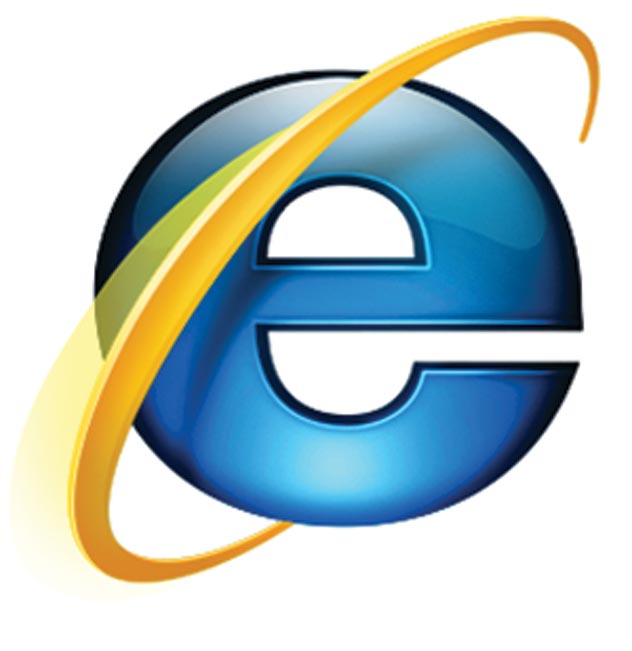 The world’s most-used internet browser, Microsoft’s Internet Explorer, is on a steady decline in India, reveals a study by Irish metrics firm StatCounter. The world’s most-used internet browser, Microsoft’s Internet Explorer, is on a steady decline in India, reveals a study by Irish metrics firm StatCounter.
IE, as it’s known, has lost almost 20 percent market share in India in the past two years, while Google’s Chrome and Mozilla’s Firefox have made great strides.
According to StatCounter, the percentage of PCs running Internet Explorer in India dropped from close to 70 percent in 2008 to about 51 percent currently . The drop was despite an absence of any regulation by a trade commission , unlike that mandated by European Union on Microsoft, this year.
In Europe, Internet Explorer lost three times more share this month than usual in some European countries since the company was forced to mandate a ballot screen by EU in its Windows 7 operating system.
The ballot screen offers a choice between Mozilla’s Firefox, Google’s Chrome, Apple’s Safari, Opera and others, by displaying icons of rival browsers.
Worldwide, Internet Explorer’s market share has suddenly started dipping, and rivals Chrome’s and Firefox’s rising following the EU regulation. Worldwide IE has a market share of about 55 percent followed by Firefox’s 31 percent, Chrome at 7 percent and Safari at about 4 percent currently.
India does not have any such mandate but still the erosion in market share has been steady. Besides security, the decline is also due to slow connectivity in a country already plagued by slow Internet speed. Rivals Chrome and Opera are upbeat about the change. “We believes believe user choice is important because that’s what stimulates innovation ,” says Vinay Goel, products head, Google India, commenting on the introduction of browser ballot in European market.
|TOP|
Xerox Corp Opens India Innovation Hub in Chennai
 Xerox Corporation — a $22 billion global enterprise for business process and document management — has opened its India innovation hub at the Olympia Technology Park in Chennai. Xerox Corporation — a $22 billion global enterprise for business process and document management — has opened its India innovation hub at the Olympia Technology Park in Chennai.
It is based on the concept of "open innovation" and will bring together Xerox scientists and engineers with leading Indian academic institutions, research labs and industry partners. Its initial mission is to develop document management solutions that are relevant to emerging market countries and contribute innovation to solutions and services delivery.
"The India Innovation hub exemplifies our continued commitment to customers in the emerging markets," said Dr. Sophie Vandebroek, Xerox chief technology officer and president of the Xerox Innovation Group. "Creating a research facility in India allows us to make use of local knowledge and to extend that expertise to our global initiatives."
The hub will enable Xerox to expand and build on its strong partnerships with India’s top technical and business schools. Research will leverage Xerox’s world-class expertise in imaging, data mining, smart document management, linguistics, and ethnography with the latest technologies and trends such as cloud and web computing, human computation, social networks and computational economics.
"Open Innovation is at the core of how we conduct research not only at the Xerox India Innovation Hub, but also at Xerox research centers around the world," said Dr Meera Sampath, director of the Xerox India Innovation Hub.
|TOP|
Unique ID Number Will Help Transparency: Nilekani
The Unique Identification Number will bring in mobility, choice, transparency and accountability at the doorsteps of the common man, UIDAI chairman Nandan Nilekani has said.
The Infosys co-founder, who now heads the government's ambitious Unique Identification Authority of India, said the UID is a scheme for the marginalized people of the country.
He said the slogan of bijli, sadak, pani which talks about the need for development would now be taken over by a new catch phrase seeking bank account, mobile numbers and Unique Identification Number.
The 16-digit unique number, which is likely to be rolled out by next year, would be a fundamental part of the next decade, he said.
Nilekani, who was speaking at a summit in New Delhi organized by the Skoch foundation, said talks are already on with various government departments and all state governments for bringing them on board on the project which aims to give a unique number to all residents of the country.
Talking about public partnership in the project, he said it was very crucial and the public can volunteer for the project and can even work with it on a sabbatical.
"We are in talks with everyone including major industries like mobile companies, banks and everyone interested," he said.
Nilekani said from the slogan of "roti, kapada, makaan" (food, clothing, shelter) in the 1960s and 1970s, India grew to the slogan of "bijli, sadak, pani" (electricity, roads, water) in the last 8-10 years.
"I think, in the next ten years, it would be bank account, mobile number and UID. All these are abstract ideas but they are tools for empowerment, access and opportunity," he said.
|TOP|
INFOSYS: Soft Growth
 The Indian IT industry has survived the global financial slowdown, but gnawing competition and increasingly stingy customers are haunting the $50-billion segment led by companies like Infosys that is gearing up for the annual earnings season beginning April. The Indian IT industry has survived the global financial slowdown, but gnawing competition and increasingly stingy customers are haunting the $50-billion segment led by companies like Infosys that is gearing up for the annual earnings season beginning April.
The industry may have to live with a growth rate of 15-18 percent, down from the 25-30 percent pace it enjoyed from 2005 onwards, forecast broking firms and industry players. Financial analysts at UBS, CLSA and Angel Broking predicted annual revenue growth of up to 10 percent and profit increase of up to 15 percent for the country’s top software services companies.
“The big challenge is not growth — it’s shedding away the low-cost tag and gaining more share of high-paying business such as consulting where IBM and Accenture are strong,” said the CEO of one of the top five Indian software exporters. He requested anonymity because his company is in the mandatory silent period before announcing its earnings.
UBS analyst Diviya Nagarajan said in a report early March that the firm had lowered its medium-term revenue growth estimates for the Indian IT sector by 2-3 percent in compound annual growth rateterms to factor in the increased competitive threats. “Growth rates for Indian vendors who participate significantly in growth budgets — new project development — would slow and the market’s 20 percent-plus revenue growth expectations would not be met in the medium to long term,” she said.
|TOP|
DELL: Upbeat about India
 Michael Dell, the founder of the $61-billion Dell, sees India playing a key part in the company’s dramatic shift towards selling services to business clients after shaking off its singular dependence on direct sales of personal computers. Michael Dell, the founder of the $61-billion Dell, sees India playing a key part in the company’s dramatic shift towards selling services to business clients after shaking off its singular dependence on direct sales of personal computers.
Dell, whose return as CEO in 2007 redefined a hardware company that once championed the direct sales model, sees the Indian market helping its offshoot Dell International Services expand beyond technology and consulting services to healthcare, insurance and governance. “India is a great place to be in. It is growing faster than China for us,” Dell told reporters.
Though the country accounts for only 2 percent of the company’s revenue, Dell counts it among the top three key global markets. The company has 23,000 employees in India, about one-fourth of its global workforce. With a market share of nearly 13 percent here, a big chunk of Dell’s profits comes from servers, storage and services. “The India operations are doing well. All businesses in India this quarter are growing more than 100 percent and the country offers enormous manufacturing opportunities.”
Though some analysts have said the company has struggled to shed its sole dependence on direct sales of PCs to businesses, Dell remains upbeat about the future. It is counting on a resurgence in technology spending, having benefited immensely from rise in corporate spending just after the meltdown. “Reaching $60 billion organically was great. But we found the strategy employed to reach here needed a relook and are now making progress in new areas,” said Dell. The company, which is now also focusing on selling products to consumers at retail stores, is targeting segments such as infrastructure management, applications development migration, technology infrastructure consulting and systems integration.
|TOP|
WIPRO: Center in Brazil
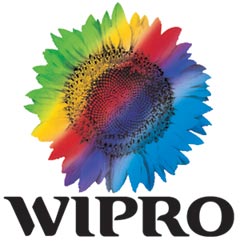 Wipro Technologies, the global IT services business of Wipro Limited, has announced the inauguration of its new global delivery center in Curitiba, Brazil. Wipro Technologies, the global IT services business of Wipro Limited, has announced the inauguration of its new global delivery center in Curitiba, Brazil.
The center was inaugurated by the mayor of Curitiba, Beto Richa, and the Consul General of India in Brazil Jeitendra K. Tripathi.
Bangalore-headquartered Wipro has been operating in Brazil for four years now and the expansion in Curitiba is a part of the company's strategy to diversify its footprint globally.
The Curitiba center would serve as the regional headquarters for other Wipro offices located in the region — Sao Paulo (Brazil) and Buenos Aires (Argentina), a company statement said.
The center will serve global and domestic clients. Curitiba will extend Wipro's expansive IT and BPO portfolio and serve nearly 20 clients, the statement said.
The center, which started with 60 people, currently employs around 350 people. Wipro plans on increasing this headcount based on further business demand.
After a rigorous assessment, Curitiba was chosen as a location for Wipro's Latin America operation due to the available talent pool and the excellent infrastructure support that the city offers.
"The center, which has received positive feedback from existing clients and new customers, will stay committed to delivering world class solutions and creating new job opportunities in the local community," said a Wipro statement.
|TOP|
INTEL: $23M Invested
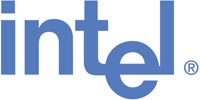 Intel Capital, Intel Corporation’s global investment unit, has said it has invested $23 million in three Indian technology companies — July Systems, KLG Systel and MCX. Intel Capital, Intel Corporation’s global investment unit, has said it has invested $23 million in three Indian technology companies — July Systems, KLG Systel and MCX.
However, the firm did not reveal the amount the three companies have received individually. Funding would come from the $250 million Intel Capital India Technology Fund established in December 2005, Intel Capital said. “This fund invests in Indian technology companies to stimulate local technology innovation and the continued growth of India’s information technology industry,” it said.
July Systems provides mobile internet solutions which enables media brands to publish, distribute, monetize inventory and personalize services for consumers. KLG Systel provides smart grid and energy management and efficiency solutions to power utilities and end-users.
MCX, a leading commodity futures electronic exchange in India, has permanent recognition from the Indian government for facilitating online trading, clearing and settlement operations for futures market across the country. “Intel Capital’s investment in July Systems, KLG Systel and MCX reinforces our commitment towards fostering Indian innovation,” president of Intel Capital and executive vice- president of Intel Arvind Sodhani said.
|TOP|
AT&T Stake in Tech M
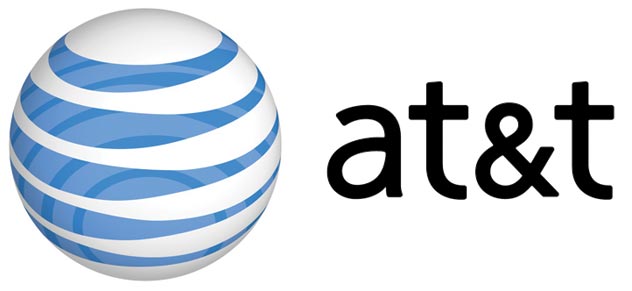 U.S. telecom provider AT&T has picked up an 8.07 percent stake in Tech Mahindra from its promoters in return for giving the company a certain amount of business over a period. According to a filing on the NSE, AT&T purchased about 9.87 million shares in an off-market transaction at $3.5, or about Rs 162, per share. U.S. telecom provider AT&T has picked up an 8.07 percent stake in Tech Mahindra from its promoters in return for giving the company a certain amount of business over a period. According to a filing on the NSE, AT&T purchased about 9.87 million shares in an off-market transaction at $3.5, or about Rs 162, per share.
An agreement signed between the two firms in May 2005 gave AT&T the option to purchase shares in Tech Mahindra if it met certain revenue targets.
“AT&T became eligible to exercise these options because it met the revenue milestones. This is not a new transaction, it has been disclosed in our IPO prospectus,” said Sonjoy Anand, CFO, Tech Mahindra. AT&T is Tech Mahindra’s second-largest customer, contributing about 15 percent of its revenues. “There is no fresh issue of capital, and, therefore, no equity dilution. The shares were held by Mahindra BT Mauritius and AT&T had options against these shares,” added Anand.
TechM has followed the practice of giving cash or equity stake in return for large contracts, especially with its largest client, British Telecom. The approach has drawn flak from analysts. In the December 2009 quarter, BT re-negotiated some of its contracts with TechM at a lower pricing and paid an upfront compensation of Rs 968 crore in lieu of it. Rather than treat it as extraordinary income, TechM chose to amortize this upfront fee and book it as revenue over many quarters.
“In this case, in return for certain business commitments TechM gave AT&T the right to take a certain stake in the company,” pointed out an analyst, who did not want his name mentioned.
Had AT&T chosen not to exercise the options, they would have expired in July 2010.
|TOP|
Campaign in China
India has launched an aggressive campaign to showcase its IT prowess in China to woo local companies in order to bridge the trade imbalance between the two nations.
Officials of over 300 top-end Chinese companies, including that of government-owned undertakings, attended the India-China Business Technology Summit in Beijing in which NASSCOM president Som Mittal and other officials of top Indian IT firms made presentations.
Lou Qinjian, Vice-Minister, Chinese Ministry of IT, also attended the meeting.
"We are not asking for any favors. We are globally competitive in these sector... we are making an aggressive pitch to woo the Chinese companies telling them if you have ambition of becoming a global Chinese company, you need get a global IT solution provider. That is us," Indian Ambassador S. Jaishankar told PTI at the meeting.
"We are telling them that we are cost-wise and quality-wise superior to what you get in China. So, why don't you look at us. This is part of aggressive strategy where we are concerned to try and do something about trade imbalance we have with China," he said.
India's total trade with China stood at about $42 billion this year with balance of trade tilting massively in favor of China. India imported a whopping $32 billion and exported only $9.5 billion goods, mostly raw materials like iron ore and oil seeds.
India has been asking China to address the trade imbalance.
|TOP|
COGNIZANT: Tweaks Focus
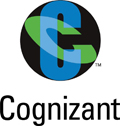 In 1998, soon after Cognizant Technology Solutions went public, Francisco D’Souza, then the chief operating officer, did some brainstorming to come up with a new internal structure that reflected the outsourcing firm’s twin priorities — customers and delivery. Instead of one manager having responsibility for the key milestones, it was shared by two — one at the customer end and other, on the offshore delivery side. In 1998, soon after Cognizant Technology Solutions went public, Francisco D’Souza, then the chief operating officer, did some brainstorming to come up with a new internal structure that reflected the outsourcing firm’s twin priorities — customers and delivery. Instead of one manager having responsibility for the key milestones, it was shared by two — one at the customer end and other, on the offshore delivery side.
The structure worked very well for Cognizant, helping it grow and sometimes grow faster than its bigger offshore peers. The company eventually went on to trademark what it called “two-in-a-box” structure.
Now over a decade later, Cognizant is overhauling this time-tested, proven model and incorporating a third leg to it. It is introducing a consultant into the cozy two-some model and making it a “three-in-a-box” structure, reflecting the seriousness of its next big bet on consulting services.
Mark Livingstone, senior vice-president, Cognizant Business Consulting, a die-hard consultant who Cognizant hired 14 months ago, has been tasked with taking the initiative forward. Livingstone, a former senior partner with AT Kearney with over 25 years of consulting, reports directly into CEO D’Souza, in another indication of its importance to the tech player.
“Initially, we have experimented with this structure for 12 customer accounts. Many customers had a lot of challenges (during the recession). The consulting partner is someone who can take a business view and help customers wade through the crisis,” said Chandra Sekaran, president and MD, global delivery. Sekaran is part of the senior leadership of Cognizant and has been with the company since its inception.
|TOP|
PC Exports
This could be the beginning of India's efforts to cut seriously into a space — PC exports — that has been dominated by China, Taiwan and some South East Asian countries. About two weeks ago, Dell made its first exports out of India, from its PC manufacturing plant in Sriperumbudur in Tamil Nadu.
Dell said it had started exports but declined to provide details. Sources close to the company, however, said Dell would be exporting several thousand desktop computers a quarter to the Middle East. The company's Sriperumbudur plant has the capacity to make 1 million units a year and most of the production from the plant has so far serviced the rapidly growing domestic market, where Dell last year sold about 8.5 lakh PCs.
Analyst Vinnie Mehta said if Dell indeed had started exports, this would be the first large PC brand to go into overseas markets. There were attempts earlier, but not much came of it. Indian hardware exports have so far been skewed towards mobile handsets, he said. Nokia, for instance , has been exporting from its plant near Chennai and has said it intends to make India a hub for exports.
Sources said it was cheaper for Dell to supply from India than it was from China, especially to countries in the Middle East, Africa and the CIS countries. Mehta said infrastructure improvements and reduction in tax rates had helped to make PC exports a successful business. But whoever is going into it has to think of setting up global scales of production, which Dell has done.
|TOP|
|
|
|
|
|
|